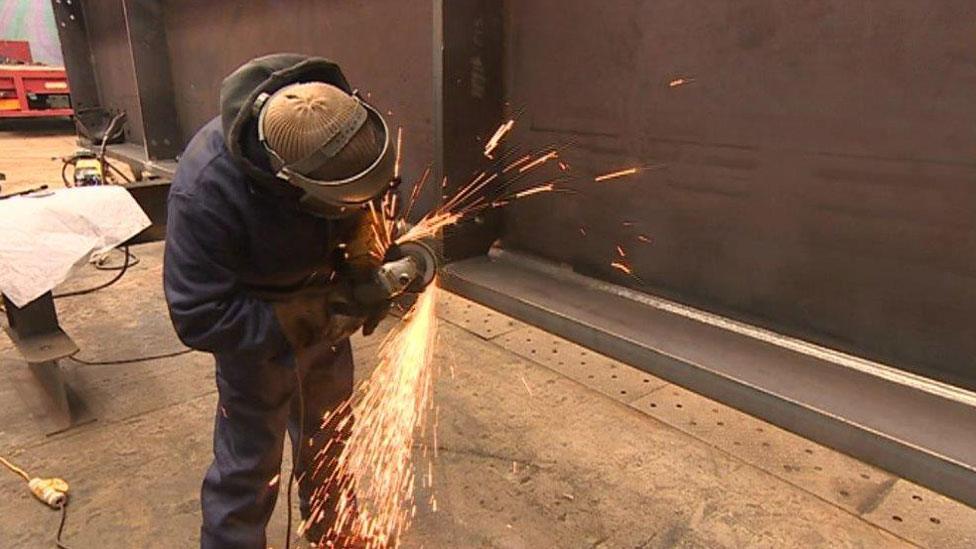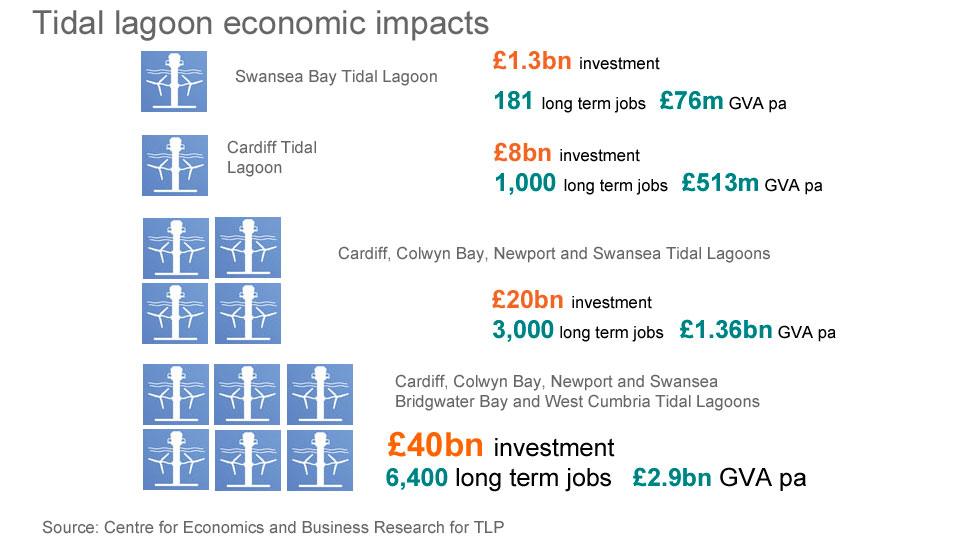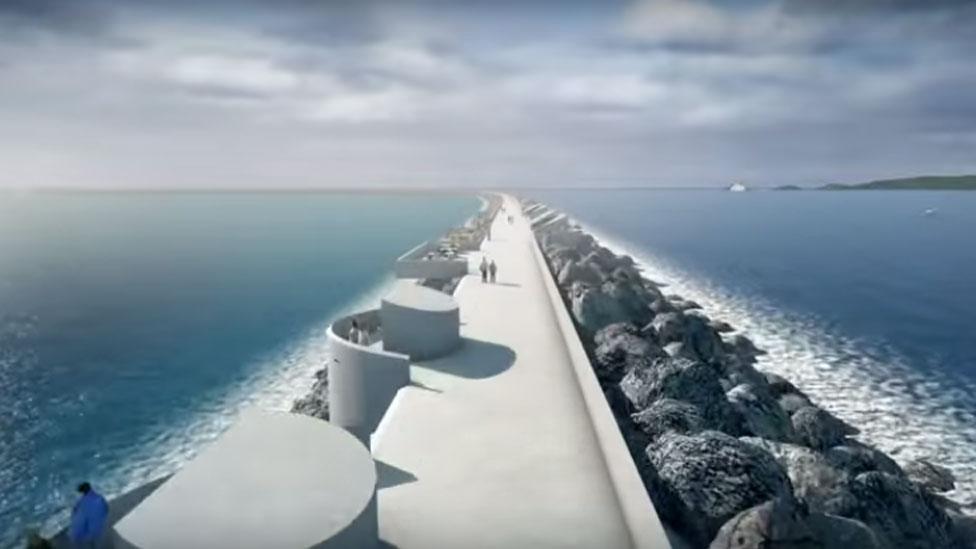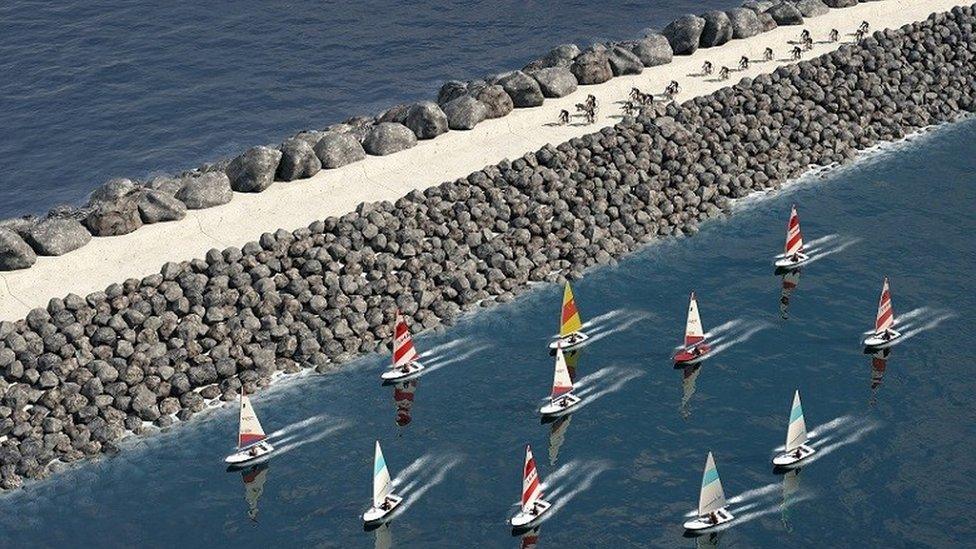Skills plea over Swansea tidal lagoon's 'golden opportunity'
- Published

Welding at a steel fabrication firm in Baglan near Port Talbot
There are calls for politicians and industry to work together to ensure Wales has the right skills in place, if Swansea's tidal lagoon goes ahead.
The Royal Institute of Chartered Surveyors (RICS) said everyone had to "step up" to ensure the "golden opportunity" was not missed in Wales.
Firms are preparing to bid for work on the £1.3bn project, which could involve 2,000 jobs.
One company boss urged a commitment to more big infrastructure projects.
An independent review into tidal lagoons on Thursday recommended Swansea Bay's energy project should go ahead, with the prospect of larger lagoons in future.
A final decision now rests with the UK Government.
Helen Kane, chair of the RICS board in Wales, said everyone was working flat out to ensure Wales could meet the potential but support needed to be consistent and funding in place to attract people into 17 trades in surveying and construction.
"It is very feasible we can provide the skills in Wales to boost the economy but we need to work together and start now," she told BBC Wales.
Ms Kane said the HS2 rail project and Hinkley Point would provide competition, with south Wales workers only this week classified as "local" for the purposes of the nuclear power station project on the Somerset coast.
"In all honesty, we're not geared up at the moment [for the lagoon], we've been preparing for it - this is a superb opportunity and we're asking Welsh and UK governments to work together with education and employers so we know where we're going and that we can provided the right skills."

Braithwaite Structural hopes to be bidding for lagoon work
Ian Hoppe, managing director of Braithwaite Structural in Baglan said the lagoon was fantastic news for heavy engineering especially and industry in south Wales was ready to embrace it.
"It's something we'd dearly love to be involved with and it's the type of work suited to our operation," he said.
"There are quite a lot of components around the turbines which would be of interest to us."

Mr Hoppe said currently there was an older age profile in engineering and his firm did not actually have a skills shortage, with a waiting list of people looking to work.
"The industry has had a very difficult period last five to seven years so there are a lot of skilled and well qualified people waiting to find jobs."
But he said there needed to be more infrastructure projects - to generate a demand for skills - which would then lead a new influx of the next generation of engineers.
"There definitely needs to be an emphasis on the projects to create the capacity requirement to bring training up to fulfil that."
If more tidal lagoons go ahead there would be even more demand for skilled workers.
It is thought the lagoon in Swansea could support more than 2,000 jobs and company behind it wants to build lagoons in Cardiff, Newport and Colwyn bay - which is forecast to bring up to 6,500 jobs.
Neath College lecturer James Llewellyn and engineering student Rhys Worlock are hopeful for the future
At Neath College they are training students from the age of 16 and there is a confidence among them that there will be jobs out there.
Whereas engineering was perhaps once seen as a contracting industry, that is no longer the case.
James Llewellyn, a lecturer involved with engineering courses, said: "There are more, keen students now pushing forward in engineering because there are massive jobs, globally now and with manufacturing. It's on the rise."
- Published12 January 2017

- Published12 January 2017
